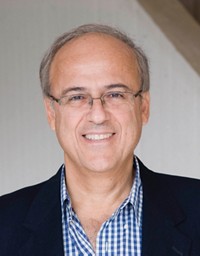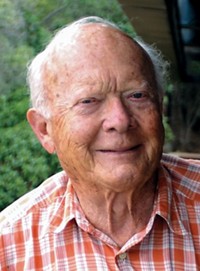Advertisement
Grab your lab coat. Let's get started
Welcome!
Welcome!
Create an account below to get 6 C&EN articles per month, receive newsletters and more - all free.
It seems this is your first time logging in online. Please enter the following information to continue.
As an ACS member you automatically get access to this site. All we need is few more details to create your reading experience.
Not you? Sign in with a different account.
Not you? Sign in with a different account.
ERROR 1
ERROR 1
ERROR 2
ERROR 2
ERROR 2
ERROR 2
ERROR 2
Password and Confirm password must match.
If you have an ACS member number, please enter it here so we can link this account to your membership. (optional)
ERROR 2
ACS values your privacy. By submitting your information, you are gaining access to C&EN and subscribing to our weekly newsletter. We use the information you provide to make your reading experience better, and we will never sell your data to third party members.
People
E. V. Murphree Award in Industrial & Engineering Chemistry
Sponsored by ExxonMobil Research & Engineering
by Celia Henry Arnaud
January 18, 2010
| A version of this story appeared in
Volume 88, Issue 3

Gregory N. Stephanopoulos, W. H. Dow Professor of Chemical Engineering & Biotechnology at Massachusetts Institute of Technology, is being honored for his contributions to metabolic engineering.
“Greg Stephanopoulos has made outstanding contributions to the synthesis of new metabolic pathways for the production of chemicals and fuels,” says Robert S. Langer, a chemical engineering colleague at MIT. “These efforts led to the definition and advancement of metabolic engineering as a new type of organic chemistry harnessing the power of microbial biosynthetic machinery for efficient product synthesis.”
Stephanopoulos, 59, has played a significant role in defining the field of metabolic engineering, Langer says. “With his groundbreaking book, ‘Metabolic Engineering: Principles and Methodologies,’ he established the scientific and engineering fundamentals and thus laid the educational foundations of this new field. This book has created a new interface between chemical engineering and the life sciences,” Langer says. In addition, Stephanopoulos is the founding coeditor of the journal Metabolic Engineering. He also launched a series of conferences on metabolic engineering.
Much of Stephanopoulos’ research has focused on microorganisms’ basic metabolism, which he has then used to advance industrial processes. Whereas the hallmark of his research has been a deep focus on metabolic fundamentals in microorganisms, its impact has been felt across product categories ranging from specialty chemicals (pharmaceutical intermediates), bulk chemicals (amino acids), and even renewable fuels (ethanol), says Chaitan Khosla, a professor of chemistry and chemical engineering at Stanford University.
Stephanopoulos developed flux analysis for use in metabolic networks and demonstrated its utility in a number of applications. For example, he used network analysis and metabolic engineering to identify new pathways for the biosynthesis of indandiol, a chiral precursor of the AIDS drug Crixivan. By modifying the reactions in the bacterium that produces indandiol, he increased the selectivity of the product from 25% to more than 95%.
Stephanopoulos received a bachelor’s degree in chemical engineering from National Technical University, in Athens, in 1973. He received an M.S. in chemical engineering from the University of Florida in 1975 and a Ph.D., also in chemical engineering, from the University of Minnesota in 1978.
In 1978, he joined the chemical engineering faculty at California Institute of Technology. He was promoted to associate professor in 1983. In 1985, he moved to MIT as a professor of chemical engineering, where he has been since. From 2000 to 2005, he was the Bayer Professor of Chemical Engineering & Biotechnology at MIT. In 2006, he was appointed to his current position.
He has received many other honors and awards, including the Marvin J. Johnson Award from the American Chemical Society, the R. H. Wilhelm Award in Microbial & Biochemical Technology in Chemical Reaction Engineering from the American Institute of Chemical Engineers (AIChE), the Charles Thom Award from the Society for Industrial Microbiology, and the AIChE Founders Award. He was elected to the National Academy of Engineering in 2003 and as a fellow of the American Association for the Advancement of Science in 2005.
Stephanopoulos will present the award address before the Division of Biochemical Technology.




Join the conversation
Contact the reporter
Submit a Letter to the Editor for publication
Engage with us on Twitter